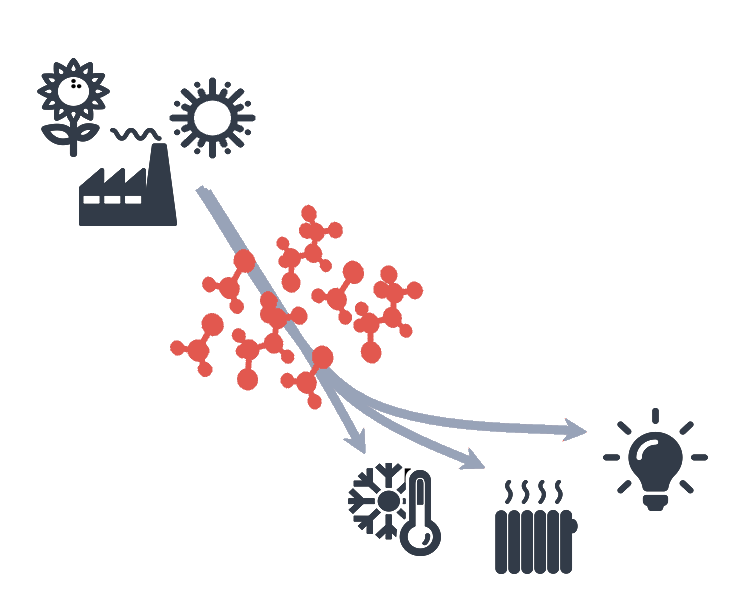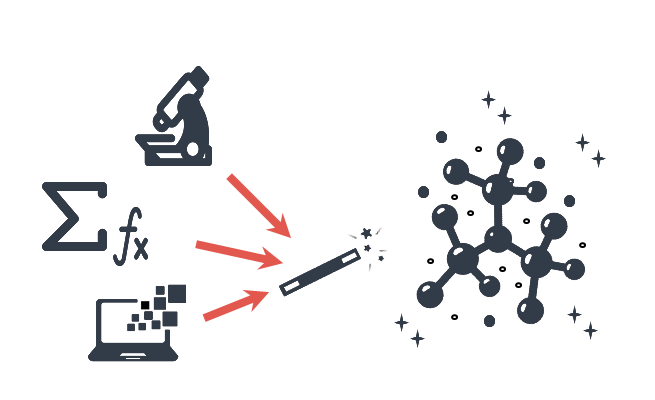Thermal energy conversion technologies can exploit low- temperature heat sources, such as industrial waste heat or renewable resources, to satisfy the society’s demand for heating, cooling and electricity.
The majority of thermal conversion technologies work thanks to a heat transfer fluid, or working fluid, which undergoes different thermodynamic processes to carry out the conversion between different types of energy.
Today we produce electricity, cooling and heating from renewable and non-conventional heat sources by using fluids that are not environmentally-friendly and can contribute to global warming. These fluids (e.g. hydrofluorocarbons) are now under imminent phase out, and therefore sustainable replacements are urgently needed.

Literature shows that it is difficult to find new fluids that satisfy all performance requirements, and there is a trade-off between their environmental and safety properties, and their energy conversion efficiencies.

This research has two main objectives:
- To develop predictive models for the thermophysical properties of new working fluids, to support their simulation in energy conversion technologies.
- To evaluate the performance of advanced energy systems using these novel working fluids.
